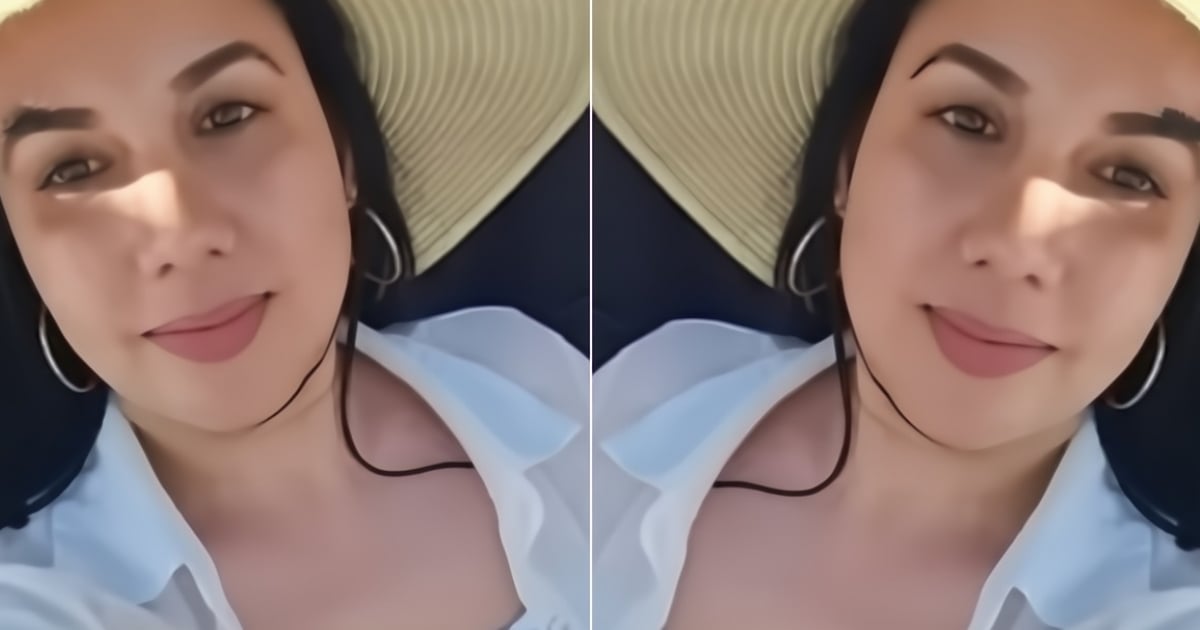The young Cuban mother, Beatriz Monteagudo, who was detained by Immigration and Customs Enforcement (ICE) despite having an I-220A form, is now free after nearly two months in custody. Monteagudo, 25, was taken into custody on March 10 during a routine ICE appointment in Miramar, Florida, and subsequently transferred five days later to Otay Mesa Detention Center in San Diego, California. On May 2, an immigration judge granted her release on bond, thanks to a legal team that took on her case pro bono and the support of family and donors who managed to pay the court-imposed sum.
The news of her release was shared by the Law Office of Liudmila A. Marcelo, PA, which provided her legal defense free of charge after friends and family initiated a campaign to secure legal representation. Through a fundraising effort organized by supporters, Beatriz's family was able to pay the bond granted by the immigration judge during a hearing last Friday.
"Beatriz is free and on her way home today, not because of any political intervention, but due to the work of our team and true friends and family who stood by her," stated the law firm in a post. Her case had previously been reported by CiberCuba when Beatriz's mother, Belkis Castillo Méndez, made an urgent plea from Cuba for legal assistance to prevent her daughter's deportation.
A Journey of Uncertainty and Family Determination
Beatriz, a medical sciences technician, had applied for political asylum and was in the process of obtaining her work permit when she was detained. During her detention, she was kept incommunicado and shared a cell with common inmates, causing significant distress to her loved ones.
The family's financial situation was precarious, having raised only $610 at the time they launched a GoFundMe campaign—far short of the typical bond amounts ranging from $3,000 to $12,000. In an emotional message from Cuba, her mother expressed heartfelt gratitude for her daughter's release. "A mother's and true friends' gratitude is more valuable than any compensation," the legal team that took on her defense asserted.
Political Reactions and the Migratory Context
Following a series of arrests of Cuban migrants with I-220A, including Beatriz, Congresswoman María Elvira Salazar publicly intervened, condemning the detentions and urging ICE to halt these practices. On Tuesday, Salazar celebrated on her social media the release of eight young Cuban women detained in March: "ALL RELEASED!... I won't stop until achieving parole in place for everyone."
These arrests sparked outrage in the Cuban community in the U.S. and reignited the debate over the treatment of those who, despite being admitted with I-220A, remain in a migratory limbo.
Frequently Asked Questions about Cuban Migrants and I-220A
What is an I-220A form?
The I-220A is a form that allows certain migrants to be released from detention while their immigration cases are pending. It is often used for individuals who do not pose a threat to public safety.
How did Beatriz Monteagudo secure her release?
Beatriz was released on bond after a legal team took her case pro bono and supporters raised enough funds to pay the required bond amount.
What role did political intervention play in her release?
While Congresswoman María Elvira Salazar spoke out against the detentions, Beatriz's release was primarily due to legal and community efforts rather than political intervention.
